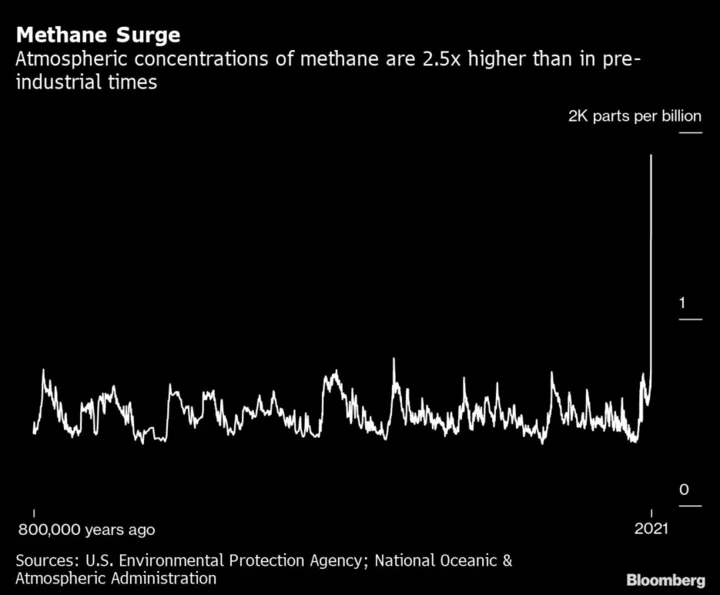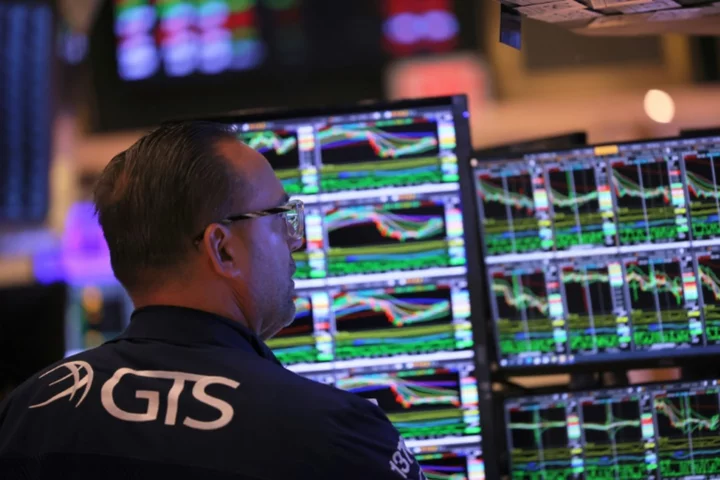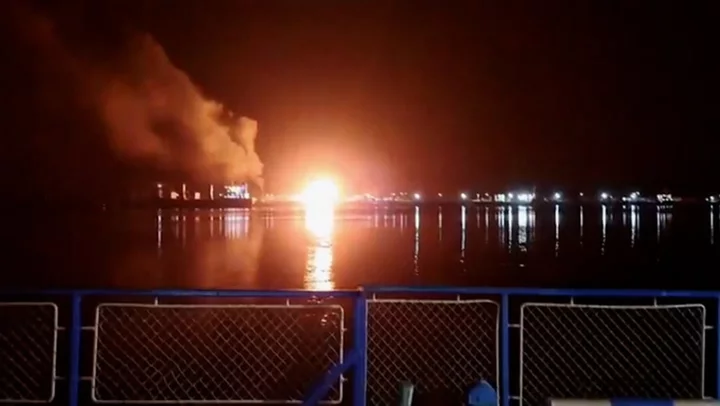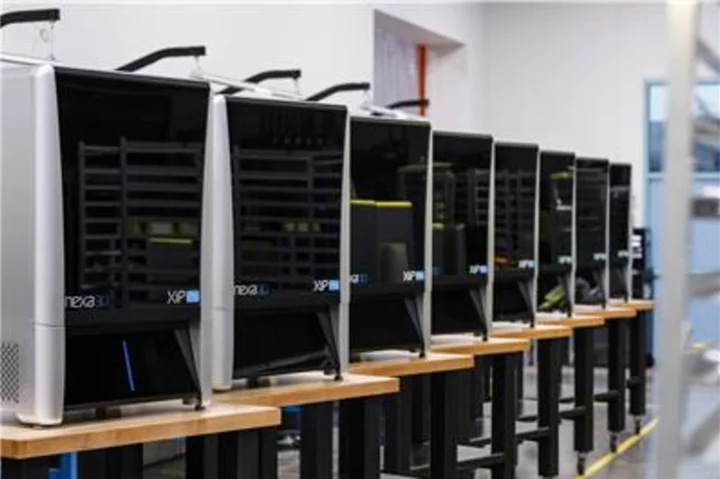Cruise operators are replacing oil-based fuel with liquefied natural gas to run their ships and pitching the shift as a greener way to travel. An investigation by environmental activists suggests the change could be worse for the climate in the short term.
Although ships burning LNG result in about 25% less carbon dioxide emissions than traditional marine fuels, the vessels often fail to combust all of the invisible gas. That means some of it leaks directly into the atmosphere where it can have a devastating impact on the climate. One of the most common engines used on LNG-powered ships leaks 3.1% of its fuel, according to the European Commission.
Using a special camera that can detect the invisible gas, a certified thermographer hired by Brussels-based non-profit Transport & Environment boarded a cruise ship in Barcelona last month as a passenger and filmed large hydrocarbon plumes spewing from the ship’s giant exhaust funnels. The emissions from the the MSC World Europa vessel almost certainly include the potent greenhouse gas methane, according to an independent analysis of the footage from Texas-based TCHD Consulting LLC.
Switzerland-based MSC Cruises SA said in a statement that data from the World Europa’s engine manufacturer show the ship’s engines have methane leakage significantly lower than the rate of 3.1%, “which is an indicative value based on older technologies.” The company declined to disclose the methane leak rate and said it doesn’t have data that can confirm the annual methane releases from the vessel. It may start a direct measurement process later this year.
Methane, which is the primary component of LNG and responsible for roughly 30% of the planet’s heating, has more than 80 times the global warming potential (GWP) of carbon dioxide during its first two decades in the atmosphere. Halting releases of the planet-wrecking gas is one of the most effective ways to ease the Earth’s soaring temperatures within a few years.
Read more: The Cheap and Easy Climate Fix That Can Cool the Planet Fast
Globally, maritime transport — which includes cruise liners, container ships, oil tankers and bulk carriers — spews more CO2 than Germany. While cruises only make up a tiny share of this sector, they’re the most public facing. Therefore any moves these ships make to adopt greener fuels will have an outsized influence in driving the energy transition, according to T&E. The International Maritime Organization this month set new goals for reducing emissions that experts said fail to align with measures that would limit global warming to 1.5C.
“LNG is far from an ideal solution,’’ said Constance Dijkstra, a shipping campaigner with T&E. “Cruise operators are currently claiming they are going greener while still using damaging fossil fuels. To future-proof the sector, we need to move ships towards green-hydrogen based fuels.”
Shipping, like aviation, is seen as one of the more difficult sectors to decarbonize because there aren’t yet widely available clean alternatives to hydrocarbon-based fuels on which the sector has relied on for decades. T&E argues that cruise ship operators should be transitioning to vessels built with engines that can run on fossil fuels and hydrogen or ammonia made from renewable energy so they can quickly transition to the cleaner alternatives once they become more widely available.
MSC Cruises, a privately held company that operates 23 vessels globally, says in a promotional video for the MSC World Europa that LNG powered ships use “the cleanest marine fuel available at scale today.” Along with lower CO2 emissions, LNG-powered vessels also release less sulphur, nitric oxide and nitrogen dioxide, according to a paper published this year in Atmosphere.
“The use of LNG as a shipping fuel instead of diesel improves the air quality and reduces the detrimental human health impacts of air emissions,’’ the authors wrote. But as extreme heat bakes the planet, there is increased scrutiny on fossil fuel choices that are outsize contributors to climate change like methane.
Methane leaks from ships can occur when the gas enters an engine cylinder for combustion but is shielded in crevices, which leads to a fraction of the fuel exiting unburned, according to the Atmosphere paper. The phenomenon — known as methane slip — is acknowledged by engine manufacturers who are developing technologies to reduce leakage, the authors said.
Using the European Commission fuel slip figures and including emissions generated during the production and transport of LNG, T&E estimates the climate impact over a 20-year period from a ship using a common four-stroke engine type is roughly 6.1 metric tons of carbon dioxide equivalent for each ton of LNG it burns. Measuring the impact of methane over 100 years drops that figure to roughly 4.5 tons. The same type of engine spews about 4.4 tons of CO2 for an equivalent amount of marine gasoil.
Engine manufacturers are beginning to respond with new technology that may offer a pathway to cleaner marine transport. MAN Energy Solutions expects to deliver its first ammonia engine to the commercial marine transport market around 2026.
“We’re so close to being technologically ready,’’ said Dijkstra. The question is “how do we make sure that those green e-fuels are available and how do we make sure we have investors, regulators and the shipping companies themselves are all ready to make a leap forward.’’









